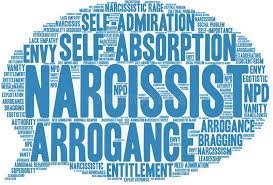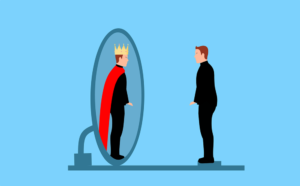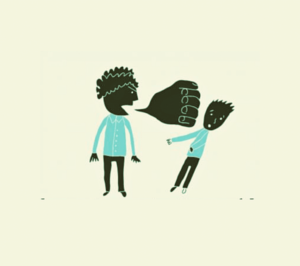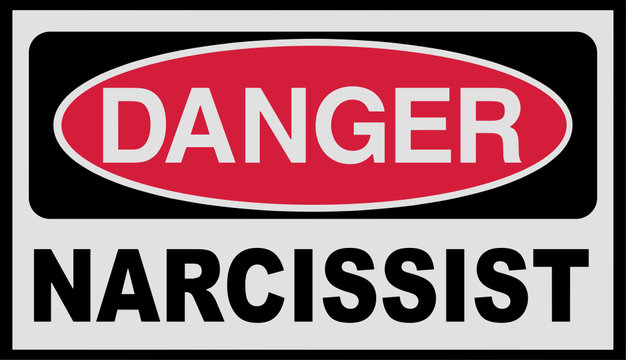Narcissism is a personality disorder that is characterized by an inflated sense of self-importance, a need for admiration, and a lack of empathy for others. Narcissists often have difficulty forming meaningful relationships with others, and can be quite destructive to those around them. If you have a narcissist friend, it can be difficult to know how to deal with them. In this blog post, we will explore who narcissists are and offer some tips on how to handle them.
Contents
Defining A Narcissist Friend

A narcissist is someone who excessively admires and loves themselves. They have an inflated sense of self-importance and believe that they are better than others. Narcissists also need for need admiration and require constant attention and validation from those around them. They can be very charming and persuasive, but they often use these qualities to take advantage of others. Narcissists can be difficult to deal with because they lack empathy and are not interested in the feelings or needs of others.
Signs Of A Narcissist Friend

Determining whether a person is a narcissist can be a difficult task. However, there are some common signs that you may be able to spot in a narcissistic friend. These may include character traits such as:
Sense Of Superiority
The first tell-all sign of a narcissistic friend is the thinking that they have an existing superiority over the people around them. They believe in emotional hierarchy and believe they are better than everybody else.
Attention Seeking
A narcissist has a never-ending urge to seek attention and validation. This can be draining for others around them as it takes up a lot of emotional and mental capacity.
Need Of Control
The need to always be in charge of every little thing stems from a sense of superiority. They want to micro-manage every aspect of everything that happens around them. These can make others around them feel emotionally fatigued.
Lack Of Responsibility
This behavior can include lying, gaslighting, blame-shifting, or not owning up to mistakes. A narcissist will very strategically choose someone close for shifting the blame onto, knowing that the person will be less likely to argue back. This behavior makes the other person feel insecure and inferior.
Difficulty In Teamwork
Due to the lack of open communication, trust, and undeniable sense of superiority, narcissistic individuals find it difficult to work cooperatively in a group setting and make reasonable adjustments. This causes issues in academic/professional settings.
Splitting
For a narcissist, everything is black or white. Everything negative is blamed on the others, while they take credit for everything good and rewarding, even if they did not have any contribution to it.
Lack Of Boundaries
A self-absorbed individual has unclear ideas of personal space. They think they have a sense of authority over everybody involved with them and also have difficulties taking ‘no’ for an answer. This can make the people around them feel burdened, disrespected, and not cared for.
Due to their sense of superiority and lack of understanding and empathy, it gets difficult for narcissists to form emotionally intimate relationships. This also affects the quality of their friendships as their ability to trust and be vulnerable causes emotional disparities.
Fear Of Rejection
In an attempt to protect their ego, narcissistic individuals tend to avoid rejection, criticism, denial, or any other negative emotions which may further infiltrate their self-respect.
Abusive Tendencies
Narcissist individuals may inflict abusive behaviors on their friends to keep them in control. These behaviors may include toxic and manipulative tactics such as breaking/hoarding valuables, gaslighting, taking financial advantage, humiliation, guilt-tripping, yelling, or other such tactics.
Effects Of Having A Narcissist Friend

Having a narcissist friend can be difficult and frustrating. It can impact a person’s self-image and also intervene in their other friendships. Some common side effects of dealing with a narcissist friend include things such as:
- emotional and/or mental fatigue
- trust issues
- distorted sense of self
- lack of healthy boundaries
- short temper
- constantly feeling like you are “walking on eggshells” around people
- inferiority complex
- feeling emotionally burdened
- difficulties in opening up about your emotions
- increased skepticism and doubts in other existing relationships
Tips To Deal With A Narcissist Friend
It can be difficult to deal with a narcissistic friend, but it is important to remember that you are not responsible for their happiness or behavior. There is no one-size-fits-all solution for dealing with a narcissistic friend. The approach that you take should be based on your situation and also the severity of the narcissistic behavior.
However, some general tips for dealing with a narcissist friend include:
- Maintain healthy boundaries. Learn to say ‘no’ and be straightforward wherever possible. Take gradual steps to establish a healthy distance.
- Refuse to engage in drama or arguments. A narcissist tends to push innocent people in front as baits to deal with problematic events. Have a certainly strong eye for recognizing these moments and honor your self-respect by politely stepping back.
- Set clear limits and expectations. Be vocal about your feelings. Even if the person refuses to understand, you can justify your side of the story by providing honest feedback.
- Utilize your existing support system. Confine your trust in someone empathetic and trustworthy, and also a patient listener. An honest and open sense of support further provides emotional validation.
- Avoid taking responsibility for others’ behaviors. Remember that you alone can not ‘fix’ something you are not responsible for. Self-accountability can prove to be toxic and burdening.
- Prioritize self-care. It can get exhausting to deal with someone who drains your mental energy. Allow yourself space to recharge and indulge in fulfilling care and love.
Conclusion
Narcissism is a personality disorder that is characterized by an inflated sense of self-importance, a need for admiration, and a lack of empathy for others. Therefore, narcissists often have difficulty forming meaningful relationships with others. And can also be quite emotionally destructive to those around them. If you have a narcissist friend, it can be difficult to deal with them. However, by understanding who they are and how they think, you can make the relationship work.
A Word From Therapy Mantra
Your mental health — Your psychological, emotional, and social well-being — has an impact on every aspect of your life. Positive mental health essentially allows you to effectively deal with life’s everyday challenges.
At TherapyMantra, we have a team of therapists who provide affordable online therapy to assist you with issues such as depression, anxiety, stress, workplace Issues, addiction, relationship, OCD, LGBTQ, and PTSD. You can book a free therapy or download our free Android or iOS app.


